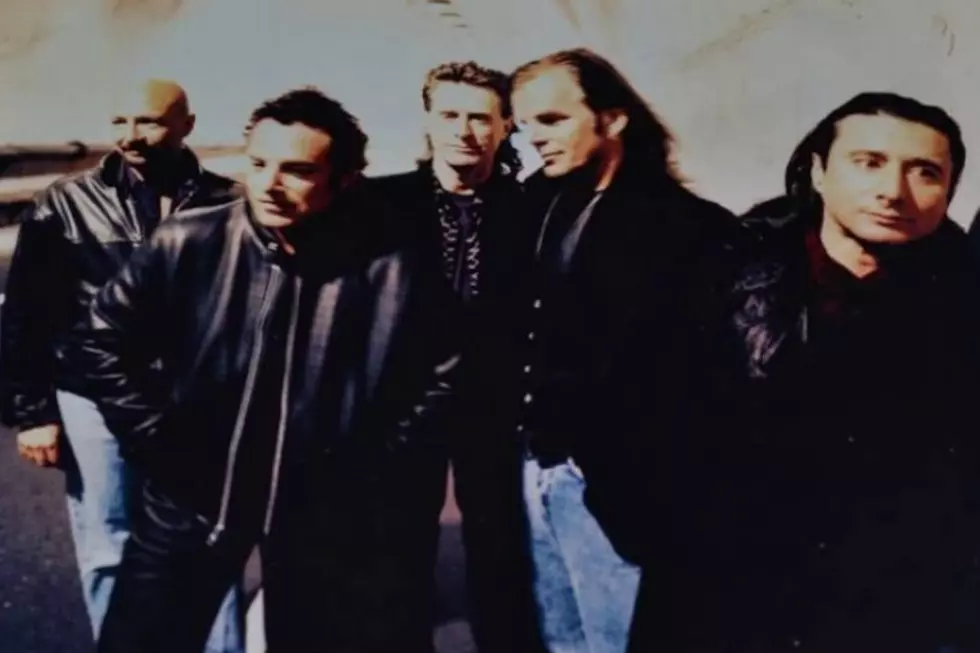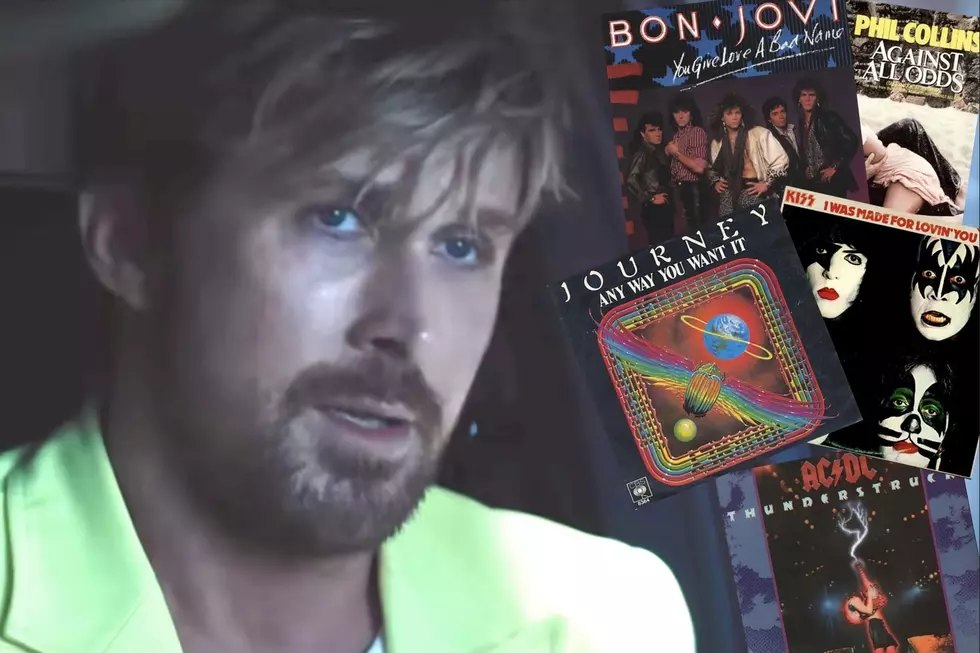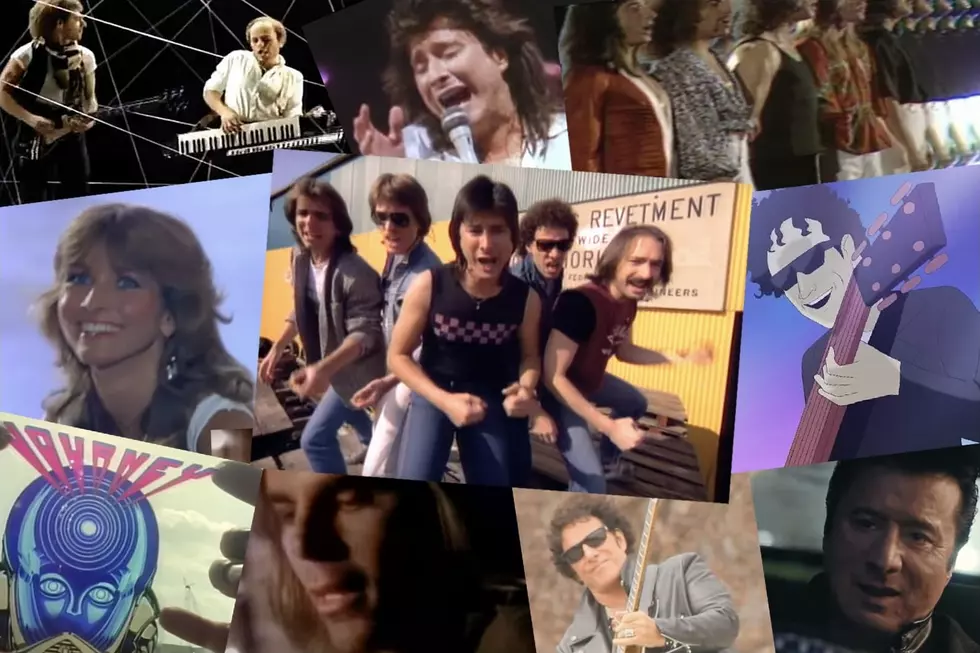
When Journey Powered Up for Resurgent ‘Trial by Fire,’ Then Disintegrated
If Journey's short-lived '90s reunion sounded like a return to form, that was because the work – a lot of it - had finally paid off.
New producer Kevin Shirley put the freshly reformed early-'80s lineup of Neal Schon, Steve Perry, Jonathan Cain, Ross Valory and Steve Smith through a rigorous wood-shedding period in the run up to Trial by Fire. By the time the album arrived on Oct. 22, 1996, Journey was working at a peak pace, able to put down nearly complete song takes live in the studio.
"The real challenge was, I don't think any of us were used to rehearsing as much as we did," Schon tells Ultimate Classic Rock in an exclusive interview. "But it turned out to be a good thing. We rehearsed for a good six weeks. That's a long time. We basically rehearsed everything like we were going to play a brand-new record live, with no overdubs."
In this way, Trial by Fire wasn't just an attempt to recreate the sound this same fivesome once had on 1981's Escape and 1983's Frontiers, but to actually become the band they used to be – interacting live in the studio, trying as best they could to create first-take magic. "There's something to be said about that," Schon adds. "When you have the time to get everybody together like that and rehearse, you get very comfortable with the material, the arrangements."
Shirley has said he wanted to hone Journey back into the well-oiled machine of their original era – when songs were often polished by the biggest groups out on the road, then arrived on albums fully formed. "There are some magical elements that happen with the natural feel of a band," Shirley told the Observer in 2016. "When you start to bring computers into the equation and are cutting things up all night and quantizing things, they can get very generic."
Watch Journey Perform 'When You Love a Woman'
The finished project blended every element of Journey's former chart-dominating formula, making room for arena rockers like "Castles Burning," throwback mid-tempo fare including "Message of Love" and more emotional moments like "Still She Cries." "The writing process was fairly easy and painless, like it always was between Steve, myself and Jonathan," Schon says. "We got together and wrote the tunes, I believe, in a couple of weeks." They also pushed themselves, showcasing newfound musical complexity on songs like "Forever in Blue," and adding a soaring orchestra to "When You Love a Woman" – though, Schon admits, taking so much time sometimes led down dead-end paths.
"The arrangements changed a million times on some songs, I can tell you that," Schon recalls. "That got a little mind-boggling. Like a song like 'When You Love a Woman,' I remember that that arrangement changed about a hundred times. Around the 95th arrangement that came around, I'm like brainwashed. I don't know which one is which. But when we settled in, it was a very good arrangement."
Fans responded, as the Grammy-nominated "When You Love a Woman" helped Trial by Fire to a No. 3 finish on the Billboard chart as Journey earned a million-selling album for the first time in a decade.
It seemed as if they'd finally found their way again, after a lengthy period of internal disagreements that included 1986's Raised on Radio – which found Journey whittled down to just Cain, Perry and Schon, plus a group of sessions aces to round things out – and then a series of less-successful solo projects.
"Individually, none of us made the magic as magically as we collectively make it together," Steve Perry admitted in a 1997 talk with the St. Louis Dispatch. “You start to recognize that some of the things you didn’t even know you had as a group in the music are still there, and you’ve been looking for them for a long time. All you had to do was put your guns down and get back together again.”
Listen to Journey Perform 'Message of Love'
Unfortunately, the energy created by this return-to-form project quickly dissipated when Perry was stricken with a degenerative bone disease and couldn't decide on whether to have hip surgery. His bandmates were left cooling their heels and – as a 2001 episode of VH-1's Behind the Music made abundantly clear – deep fissures returned in the immediate aftermath of Trial by Fire.
“I think the tour was all set to happen [in 1996],” Shirley told the Observer. “They had signed on to do the tour, and then everything fell apart. From what I understand, [manager] Irving [Azoff] took that plan and applied it to the Eagles. They did the Long Road Out of Eden tour, and that catapulted them into mega-superstardom, which is really what the plan for Journey was.”
After all of the time away, the effort in getting Trial by Fire just right and the momentum they'd quickly reestablished, Journey were suddenly starting over again. They didn't return to the road until 1998, and by then Perry had been replaced by Steve Augeri and Smith had resumed his well-respected jazz career.
It took a while to rebuild. Shirley later produced 2001's under-performing Arrival, but Journey wouldn't finally regain its old retail mojo until Augeri's replacement Arnel Pineda came on board for 2008's Revelation, a Shirley-produced album that became the band's first platinum seller since Trial by Fire.
Time also seemed to heal whatever wounds remained from 1996's missed opportunity. "I don't have any hard feelings," Schon says. "You know, we've had our ups and downs, like all bands do – and sometimes it goes from member to member to member. So, I have nothing but a lot of gratitude and respect for everything we've done, and every one that's been involved."
The Best Song From Every Journey Album
You Think You Know Journey?
More From Ultimate Classic Rock









